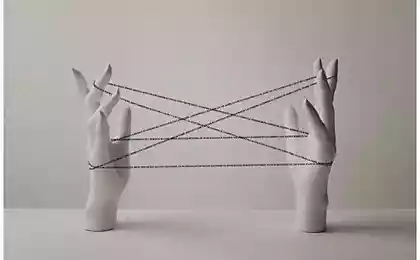170
What to do if a friend tries to imitate you in everything

Imitation in friendship is a more complex and multifaceted phenomenon than it may seem at first glance. It affects the underlying mechanisms of the human psyche and can become both a source of conflict and an opportunity for personal growth.
Imagine a situation: you buy a new jacket, and a week later your friend shows up in exactly the same one. You change your hair, he does too. You start learning Italian and suddenly find that your friend has signed up for a course. This may seem like a funny coincidence at first, but it gradually starts to annoy and cause discomfort.
Psychologists call this behavior the mimicry of social identity – the unconscious desire to copy the behavior, style and habits of significant people. This phenomenon has deep evolutionary roots and is associated with a basic human need to belong to a group.
Why do people imitate friends?

Dr. Susan Harter, a professor of psychology at the University of Denver, identifies several key causes of imitative behavior among adults.
Self-doubt It remains the main driving force of imitation. When a person does not have a clear idea of their identity, they instinctively look for role models among those they consider successful or attractive.
Anthropological studies show that imitation played a key role in the survival of our ancestors. By copying the behavior of more experienced members of the tribe, young individuals increased their chances of survival. This mechanism is still active in our subconscious.
The second important factor is socialization. A 2019 Stanford University study found that people with low self-esteem were 3.7 times more likely to exhibit imitative behavior toward friends they perceived as more successful or popular.
It's important to understand: Imitation is not always a conscious process. Often a person copies others automatically without realizing their behavior. This makes the situation even more delicate for both sides.
How Imitation Affects Friendship
Psychologist Robin Dunbar of the University of Oxford notes that emulating friendships can have both positive and destructive consequences. On the one hand, it strengthens social ties and creates a sense of intimacy. On the other hand, it can lead to loss of identity and conflict.
"When a friend is constantly copying your decisions, you may feel that your uniqueness is being devalued and your personal boundaries are being violated," Dunbar explains.
Especially painful imitation is perceived in areas that a person considers his "brand" features. If you’ve always been proud of your unusual clothing style and a friend starts copying it completely, it can make you feel like you’ve been “stolen” part of your identity.
Strategies to address the problem

Open dialogue
The first and most effective way to solve a problem is direct but tactful conversation. Psychotherapist Marsha Lucas recommends using "messages" instead of accusations.
Examples of correct wording:
• “I have noticed that we often make similar purchases. I think it would be more interesting if we developed different styles.
• “I appreciate you enjoying my hobbies, but it’s important for me to keep something personal.”
• “Let’s talk about how we can support each other but still be unique.”
Establishing healthy boundaries
Boundaries in friendship do not mean alienation; they create space for healthy relationship development. Dr. Henry Cloud, in his work Borders, emphasizes that clearly defined boundaries paradoxically reinforce intimacy between people.
Practical ways of establishing boundaries include:
- Do not share purchase plans in advance
- Limit discussion of personal projects until they are completed
- Offer alternatives: "This jacket suits you, but this other model would suit you even better."
- Encourage manifestations of the individuality of a friend
A University of California, Berkeley study found that 78% of imitative behaviors are associated with self-doubt or experiencing life crises. Understanding this can dramatically change your approach to the situation.
Instead of being angry, try empathy. Perhaps your friend is going through a difficult period and is looking for a foothold in your lifestyle. In this case, imitation becomes a form of compliment, though uncomfortable for you.
When imitation becomes a problem
There are situations where imitation goes beyond normal behavior and requires more serious intervention. Clinical psychologist Judith Orloff highlights several alarming signs:
- Obsession: Your friend copies everything from your food choices to your career plans.
- Lack of self-interest: People give up their preferences in favor of you.
- Aggressive response to attempts at discussion: Denial of obvious behavior or anger when trying to raise a topic
- Impact on other areas of life: imitation extends to relationships with others, work, family
Preventing and strengthening healthy friendships
The best way to prevent imitation problems is to build relationships based on mutual respect for individuality. Psychologist John Gottman recommends regular practice of “communication rituals” – activities that emphasize the uniqueness of each person in friendship.
Practical recommendations:
• Encourage a friend to develop their own interests
• Share your admiration for his unique qualities
• Avoid comparing yourself to others in your presence.
• Create situations where everyone can express their individuality
• Discuss the importance of personal space and boundaries
Research shows that friendships based on accepting differences are stronger and more durable than relationships built on imitation and dependency.
Conclusion
Imitation in friendship is a complex phenomenon that requires a delicate approach and understanding. It is important to remember that these behaviors often have deep psychological needs for acceptance and self-determination.
The key to solving the problem lies in open dialogue, setting healthy boundaries, and understanding the true motives behind a friend’s behavior. With the right approach, a role modeling situation can be an opportunity for deepening friendship and personal growth on both sides.
Remember, every situation is unique, and what works in one case may not work in another. Trust your feelings and don’t be afraid to seek professional help if things get out of hand.
Glossary
Mimicry of social identity
Unconsciously copying the behaviors, styles, and habits of others in order to integrate into a social group or enhance one’s status.
Empathy.
The ability to understand and share the emotional experiences of another person, to put themselves in their place.
Personal boundaries
The psychological and behavioral limits a person sets to protect their individuality and emotional well-being in relationships with others.
I-messages.
A method of communication in which a person expresses his feelings and needs without blaming or criticizing the interlocutor. It begins with the phrase “I feel”, “I think”.
Communication rituals
Regular activities or habits that strengthen emotional closeness between people and emphasize the importance of relationships.
Self-identification
The process of realizing and defining one’s identity, including understanding one’s own values, interests, abilities and place in society.
Keanna Louise Stephens: Model, Influencer and Creator of Modernity
5 signs that the reason for your loneliness is indecision























